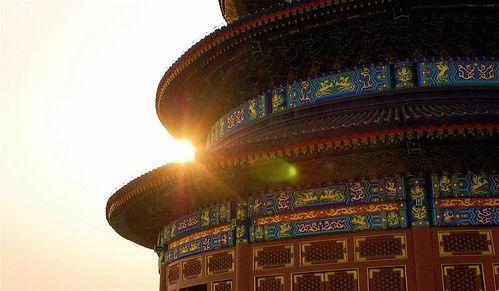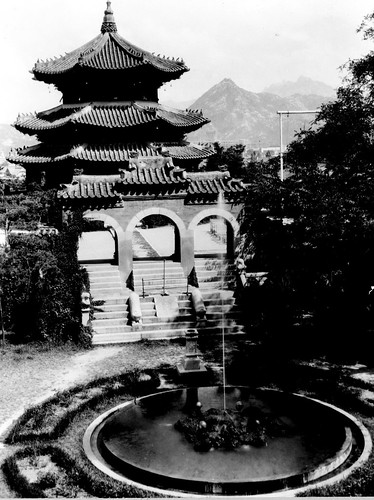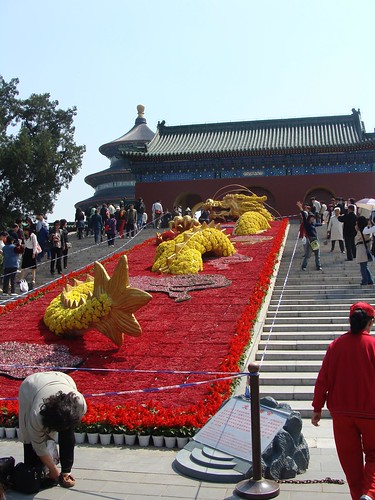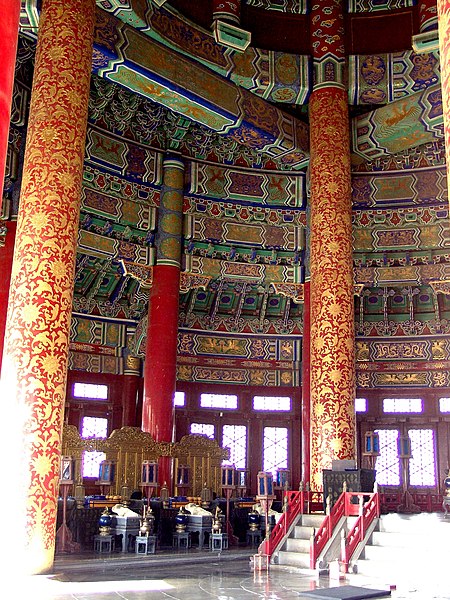Helpful info:
Admission fee: CNY 30 (Nov - Mar), CNY 35 (Apr - Oct)
Opening hours: 06:00 - 20:00
Visit time: 1:30 hours
Bus route: 6, 34, 35

Built in 1420 during the Ming dynasty the Temple of Heaven is bigger than the Forbidden City covering a massive 2,700,000 square acres. Lying about 6 km to the South in the Chongwen district the temple was used for making sacrifice to Heaven. The North area which represents Heaven is higher than the South area which symbolises Earth. In this way the emperors showed that Heaven is higher than Earth.


Among the buildings not to be missed are the Circular Mound Altar, the Imperial Vault of Heaven and the Hall of Prayer for Good Harvest.
Also the Palace of abstinence where during the summer and winter solstice the Emperor’s spent the last day of their three day fast with the first two days taking place in the Forbidden City.
On the day of the winter solstice the Ming and Qing dynasty emperors would sacrifice to Heaven at the Circular Altar to thank Heaven and pray for a good future.

The Hall of Prayer for Good Harvest has a circular roof and 28 huge posts inside the building. Divided into 3 circles the inner 4 post represent the 4 seasons and the middle 12 represent the 12 months. The outer 12 posts represent the old way of counting time – the Shichen - which equalled two hours and therefore give the 24 hour day.


The Imperial Vault of Heaven was used for placing memorial tablets of gods and is blue with a gold roof.
Connected by the Vermilion Steps Bridge the emperors of the past believed they could pass from the Hall of Prayer for Good Harvest over the bridge to the Imperial Vault of Heaven. The South end is accordingly lower than its North end.


Outside the gate of the Imperial Gate of Heaven you will find the Three Echo Stones. If you speak while standing on the first stone you will hear one echo and then standing on the other stones two or three echoes respectively. Encircling the Imperial Vault of Heaven is the Echo Wall. Two people standing at the East and West roots of the wall can easily hear the other person’s whisper!
Admission fee: CNY 30 (Nov - Mar), CNY 35 (Apr - Oct)
Opening hours: 06:00 - 20:00
Visit time: 1:30 hours
Bus route: 6, 34, 35

Built in 1420 during the Ming dynasty the Temple of Heaven is bigger than the Forbidden City covering a massive 2,700,000 square acres. Lying about 6 km to the South in the Chongwen district the temple was used for making sacrifice to Heaven. The North area which represents Heaven is higher than the South area which symbolises Earth. In this way the emperors showed that Heaven is higher than Earth.


Among the buildings not to be missed are the Circular Mound Altar, the Imperial Vault of Heaven and the Hall of Prayer for Good Harvest.
Also the Palace of abstinence where during the summer and winter solstice the Emperor’s spent the last day of their three day fast with the first two days taking place in the Forbidden City.
On the day of the winter solstice the Ming and Qing dynasty emperors would sacrifice to Heaven at the Circular Altar to thank Heaven and pray for a good future.

The Hall of Prayer for Good Harvest has a circular roof and 28 huge posts inside the building. Divided into 3 circles the inner 4 post represent the 4 seasons and the middle 12 represent the 12 months. The outer 12 posts represent the old way of counting time – the Shichen - which equalled two hours and therefore give the 24 hour day.


The Imperial Vault of Heaven was used for placing memorial tablets of gods and is blue with a gold roof.
Connected by the Vermilion Steps Bridge the emperors of the past believed they could pass from the Hall of Prayer for Good Harvest over the bridge to the Imperial Vault of Heaven. The South end is accordingly lower than its North end.


Outside the gate of the Imperial Gate of Heaven you will find the Three Echo Stones. If you speak while standing on the first stone you will hear one echo and then standing on the other stones two or three echoes respectively. Encircling the Imperial Vault of Heaven is the Echo Wall. Two people standing at the East and West roots of the wall can easily hear the other person’s whisper!
text taken from accommodation olympic games



 9:40 AM
9:40 AM
 crkota
crkota


 Posted in:
Posted in: 
0 comments:
Post a Comment